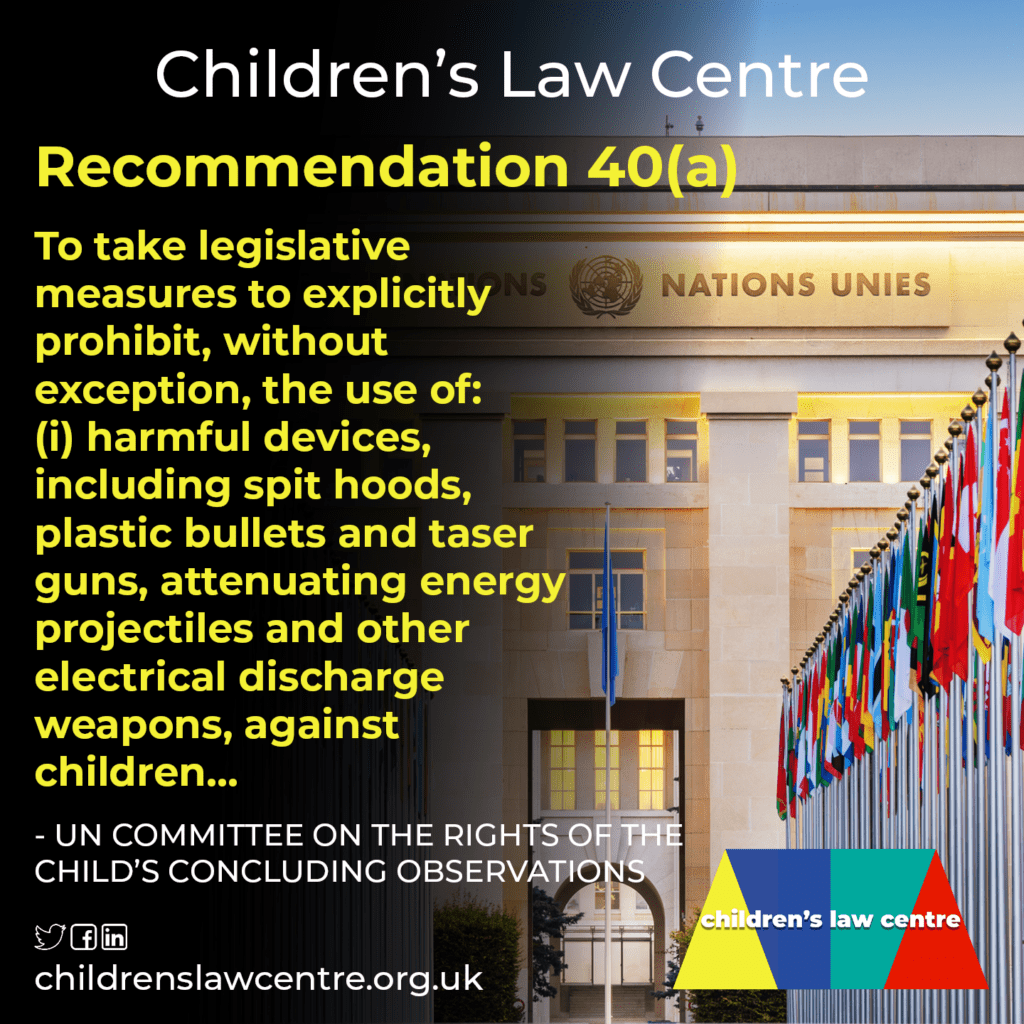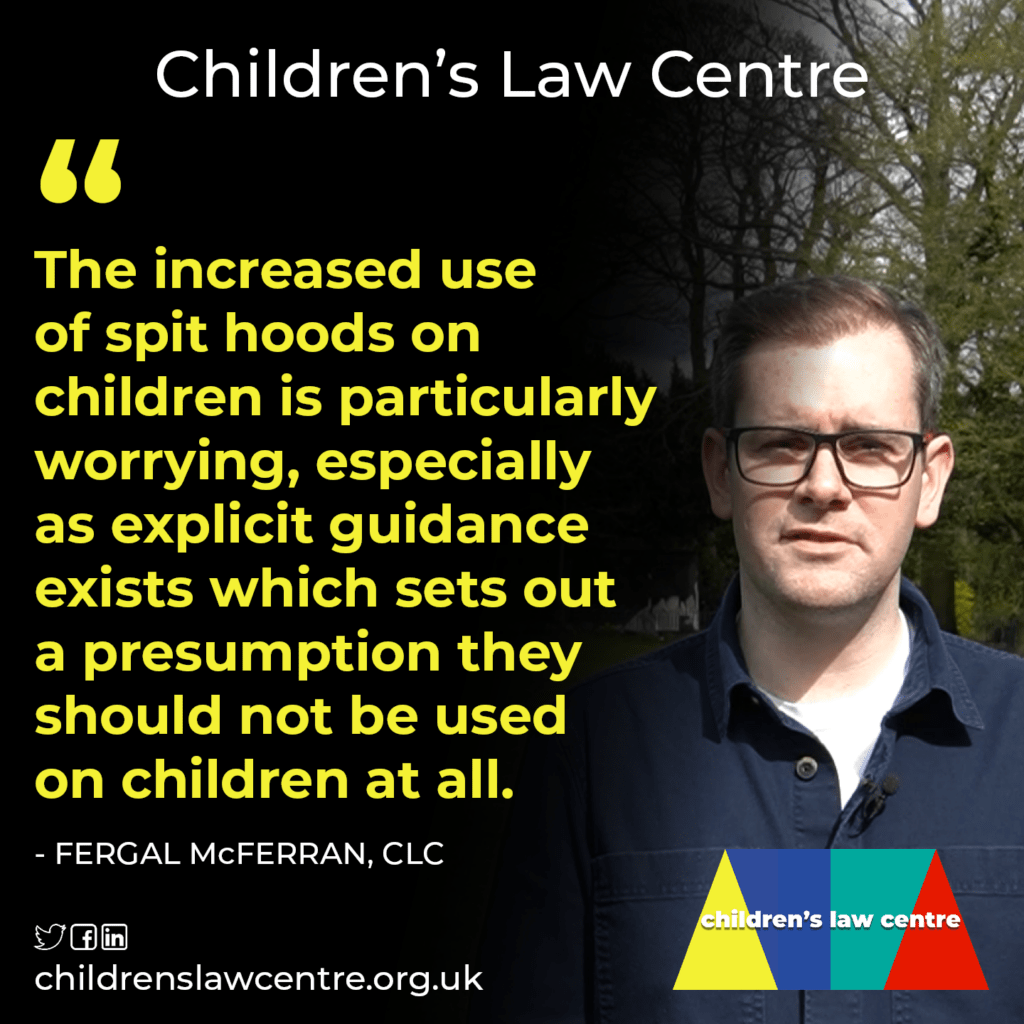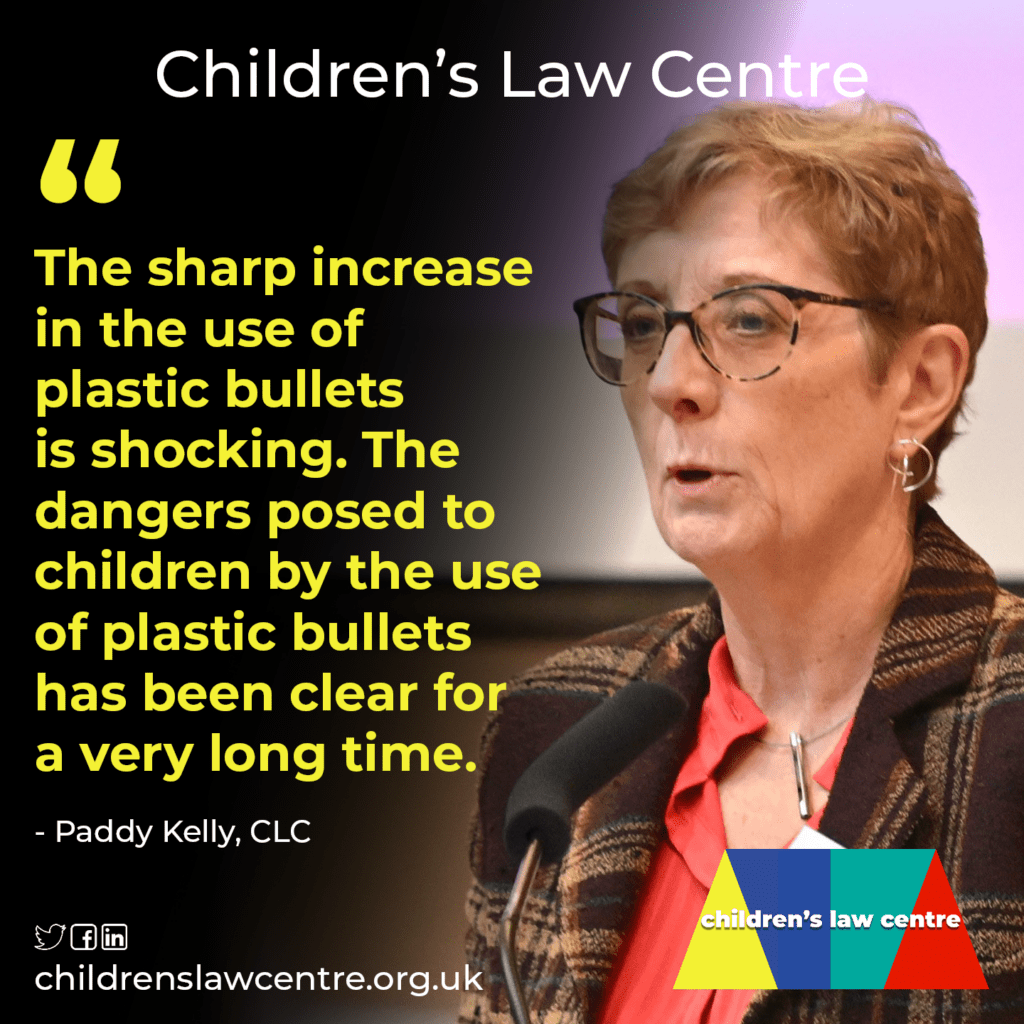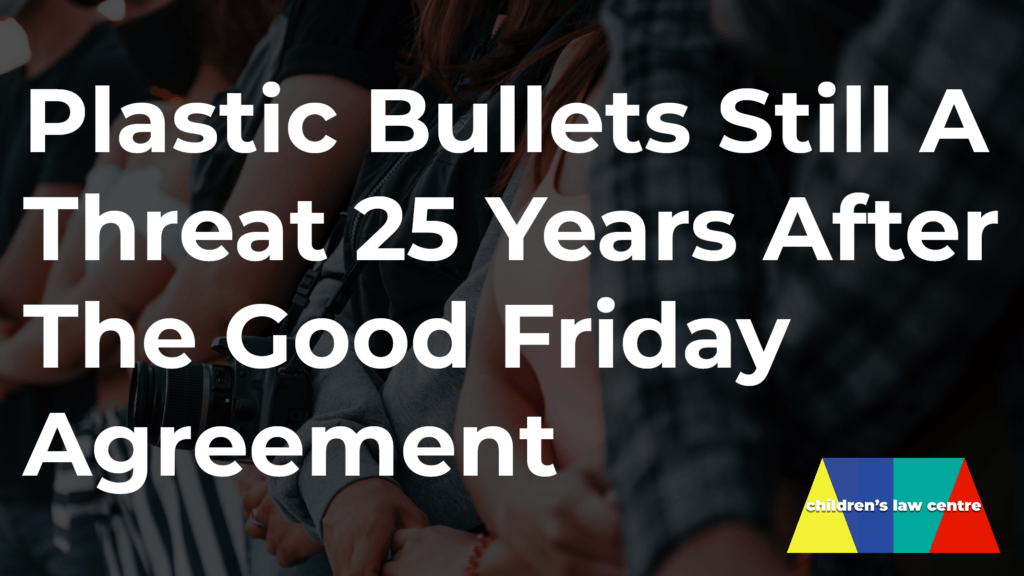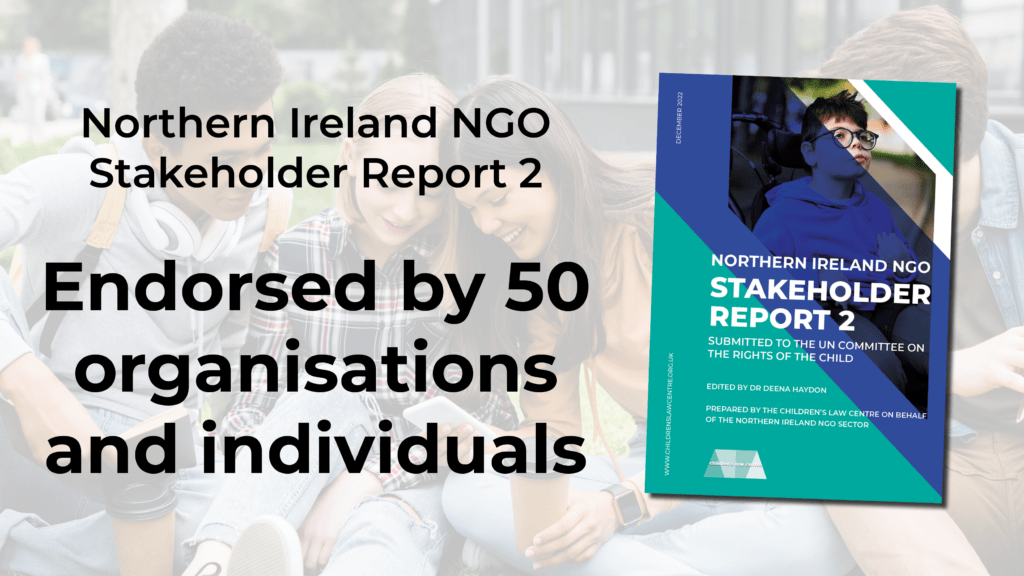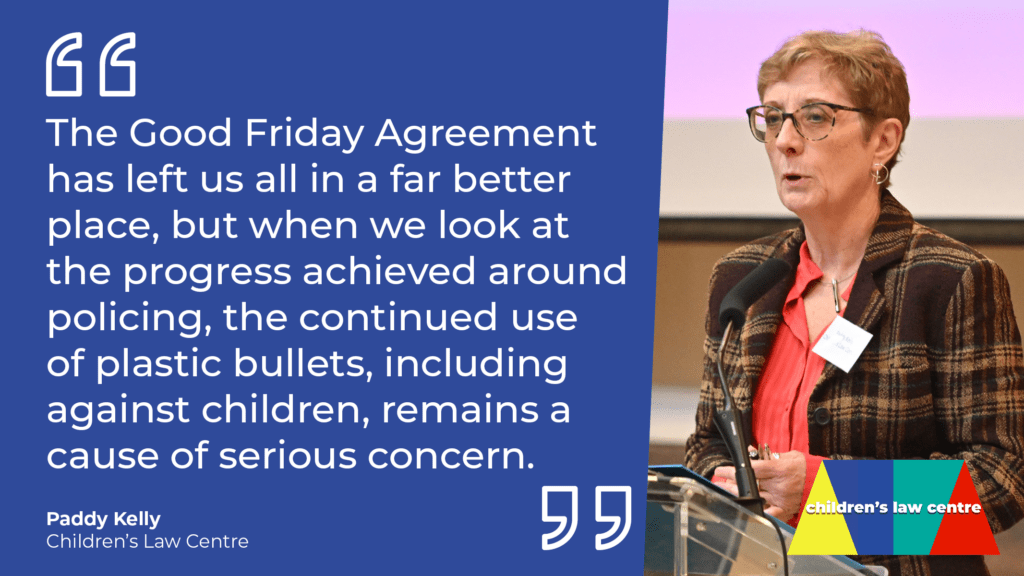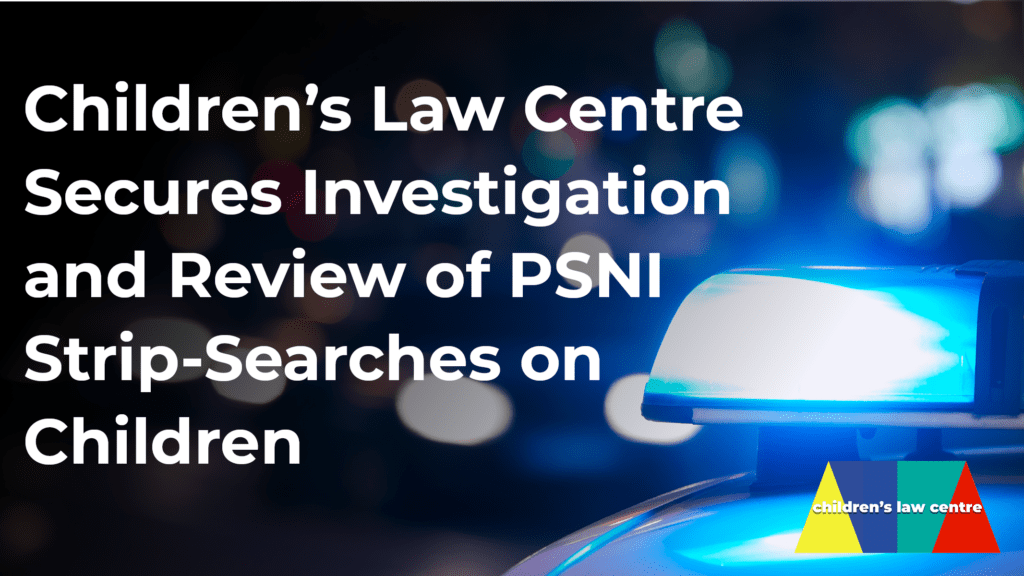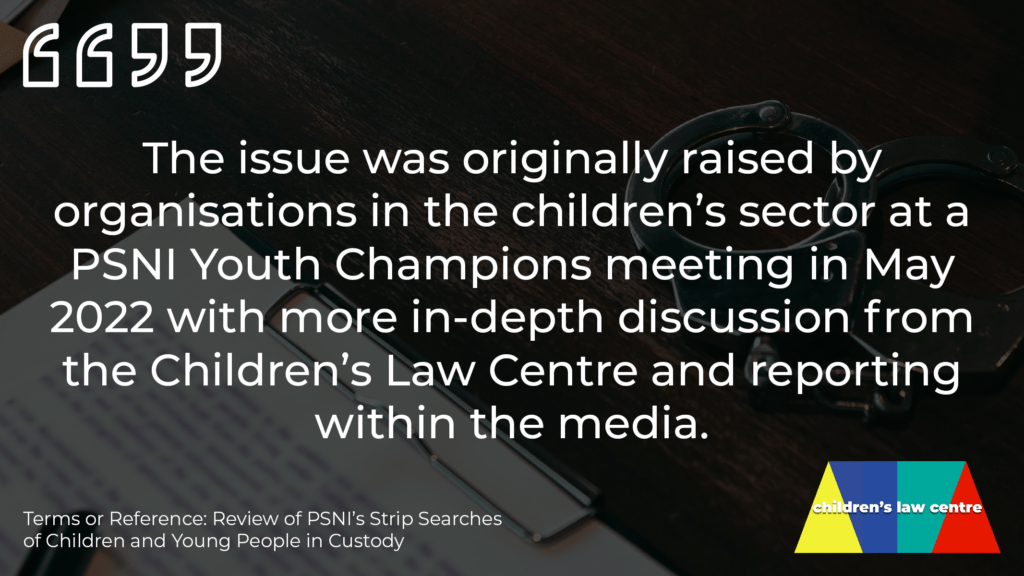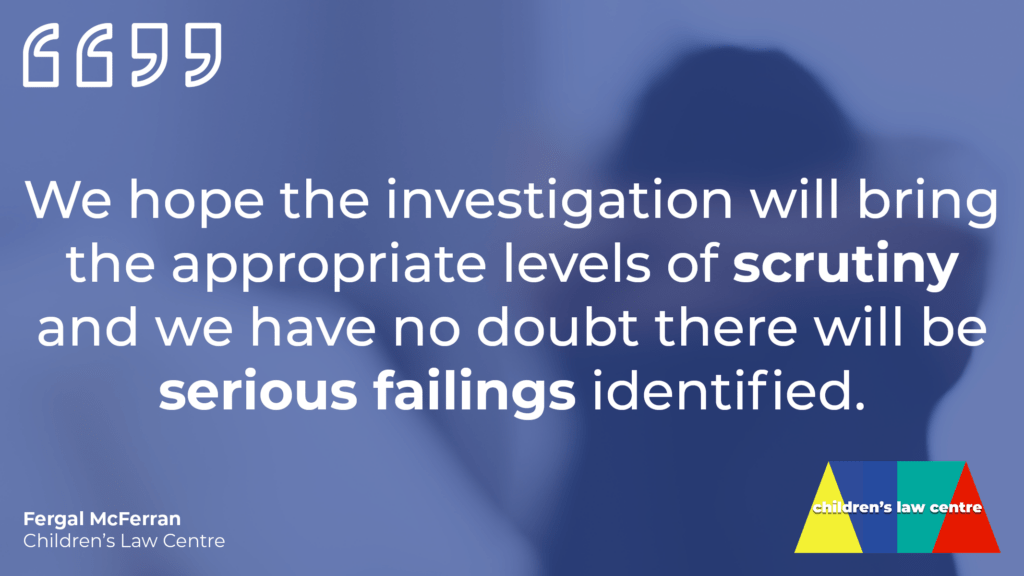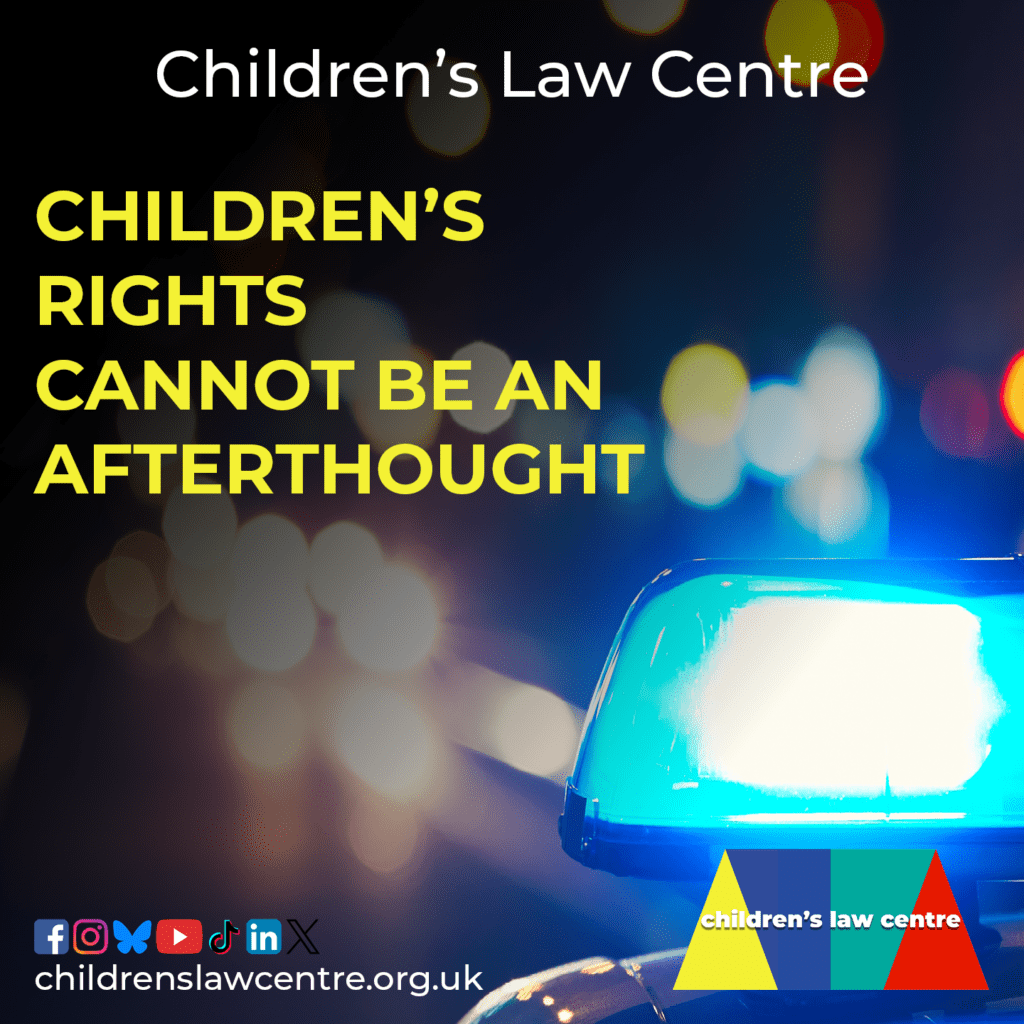
03 December 2024
A new review of children and young people and policing, published by the NI Policing Board, has highlighted the scale of human rights breaches facing children and young people when in contact with the police.
The report highlights a range of issues of serious concern, repeatedly raised over many years by the Children’s Law Centre, including concerns around uses of force, misuse of police powers, the lack of disaggregated data, issues around arrest and custody arrangements, the practice of strip-searching children, the low age of criminal responsibility and much more.
The report represents the most substantive effort by the NI Policing Board to examine the human rights implications for children of policing practice in Northern Ireland in over a decade.
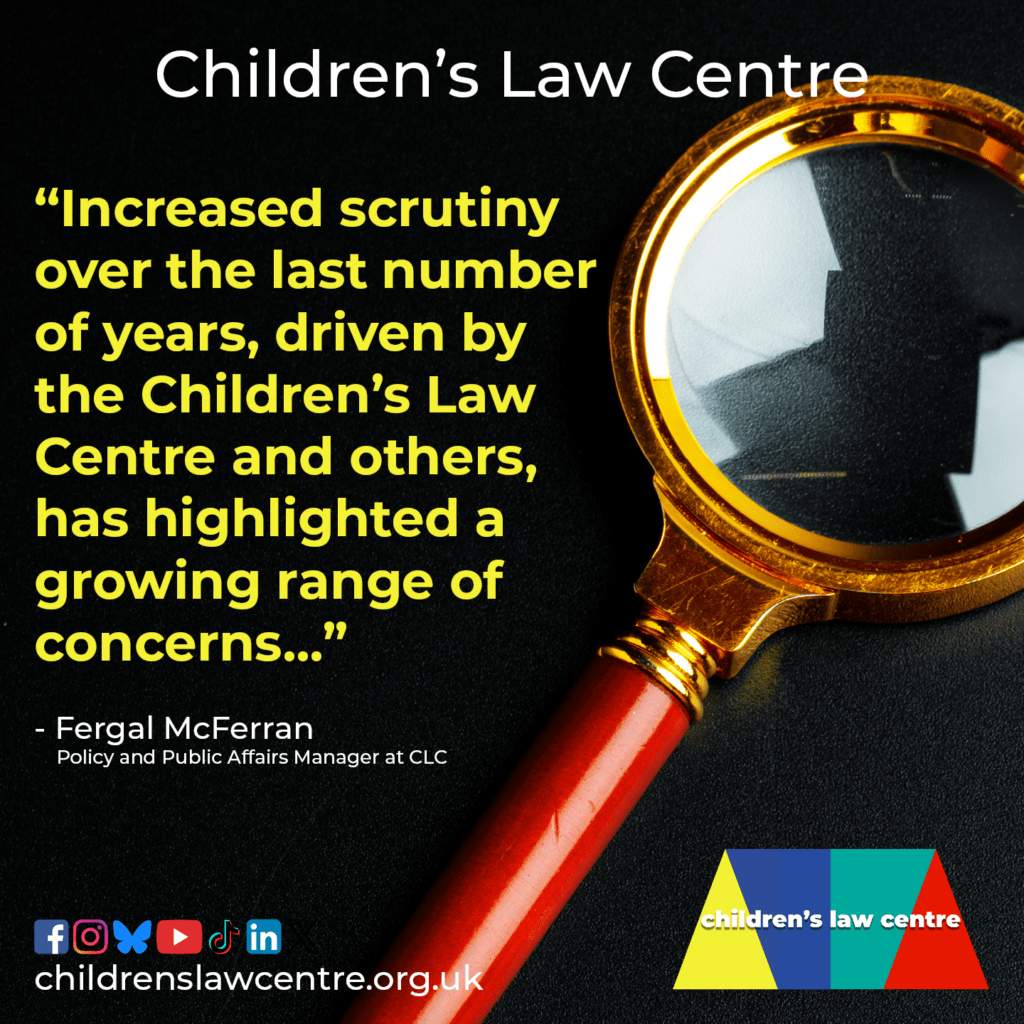
Fergal McFerran, Policy and Public Affairs Manager at the Children’s Law Centre commented on the report saying:
“This report clearly demonstrates that the foot has well and truly come off the pedal in terms of scrutiny of these issues over the last decade. As a result, when the PSNI should have been embedding human rights protections for children and young people in how they operate, they have instead regressed.
“Increased scrutiny over the last number of years, driven by the Children’s Law Centre and others, has highlighted a growing range of concerns, with children’s human rights too often looking like an afterthought, if at all.
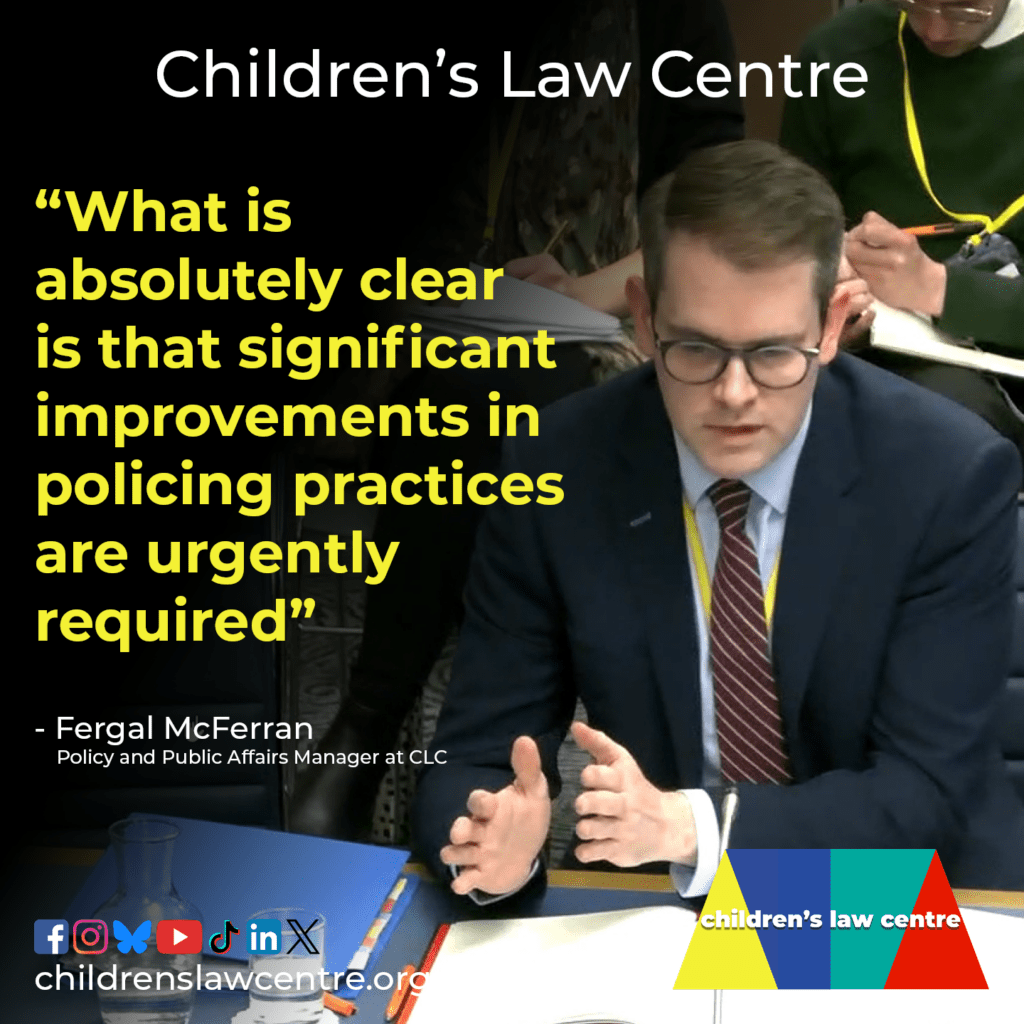
“The Children’s Law Centre welcomes this attempt to catalogue the range of children’s rights issues and breaches. That includes efforts to highlight international obligations and best practice, as well as the views of children themselves. However, and worryingly, the range and seriousness of the challenges which exist are too often not reflected in the final recommendations.
“What is absolutely clear is that significant improvements in policing practices are urgently required. This includes getting back to the core of human rights centred policing, a change of attitude from police towards children and young people, and the need for the PSNI and others responsible for policing, to genuinely listen to the views and experiences of children and young people and act on the concerns they raise.”




